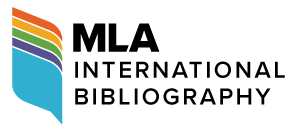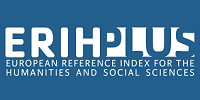Submissions
Submission Preparation Checklist
As part of the submission process, authors are required to check off their submission's compliance with all of the following items, and submissions may be returned to authors that do not adhere to these guidelines.- The article has not been previously published or submitted for consideration by any other journal (or an explanation has been provided in the Comments to the Editor).
- The paper will be sent in a main file (Microsoft Word or equivalent), without any reference or identification of the authors.
- The author assures that he/she has the rights to reproduce any images, illustrations or other supporting material accompanying the article, or that the material is royalty-free.
- The author has read and accepts the code of ethics of HYBRIDA magazine.
- The text conforms to the stylistic requirements and bibliographic standards described in the journal's Editorial Guidelines.
- If the author wishes to submit an article to one of the peer-reviewed sections (DOSSIER or MOSAIC), he/she must ensure that the article does not have any name or sign referring to the author's identity.
- The author should specify whether the research received any financial support and, if necessary, write a conflict of interest statement.
Copyright Notice
All the documents in the OJS platform are open access and property of their respective authors.
Authors publishing in the journal agree to the following terms:
- Authors keep the rights and guarantee HYBRIDA the right to be the first publication of the document, licensed under a Creative Commons license Attribution-NonCommercial-ShareAlike 4.0 International (CC BY-NC-SA 4.0) that allows others to share the work with an acknowledgement of authorship and publication in the journal.
- Authors are allowed and encouraged to spread their work (once published) through electronic means using personal or institutional websites (institutional open archives, personal websites or professional and academic networks profiles) once the text has been published.
Privacy Statement
Data collected from registered and non-registered users of this journal is part of the standard functioning of peer-reviewed journals. It includes information that makes communication possible for the editorial process, it is used to informs readers about the authorship and editing of content; it enables collecting aggregated data on readership behaviors, as well as tracking geopolitical and social elements of scholarly communication.
This journal’s editorial team uses this data to guide its work in publishing and improving this journal. Data that will assist in developing this publishing platform may be shared with its developer Public Knowledge Project in an anonymized and aggregated form, with appropriate exceptions such as article metrics. The data will not be sold by this journal or PKP nor will it be used for purposes other than those stated here. The authors published in this journal are responsible for the human subject data that figures in the research reported here.
Those involved in editing this journal seek to be compliant with industry standards for data privacy, including the European Union’s General Data Protection Regulation (GDPR) provision for “data subject rights” that include (a) breach notification; (b) right of access; (c) the right to be forgotten; (d) data portability; and (e) privacy by design. The GDPR also allows for the recognition of “the public interest in the availability of the data,” which has a particular saliency for those involved in maintaining, with the greatest integrity possible, the public record of scholarly publishing.















